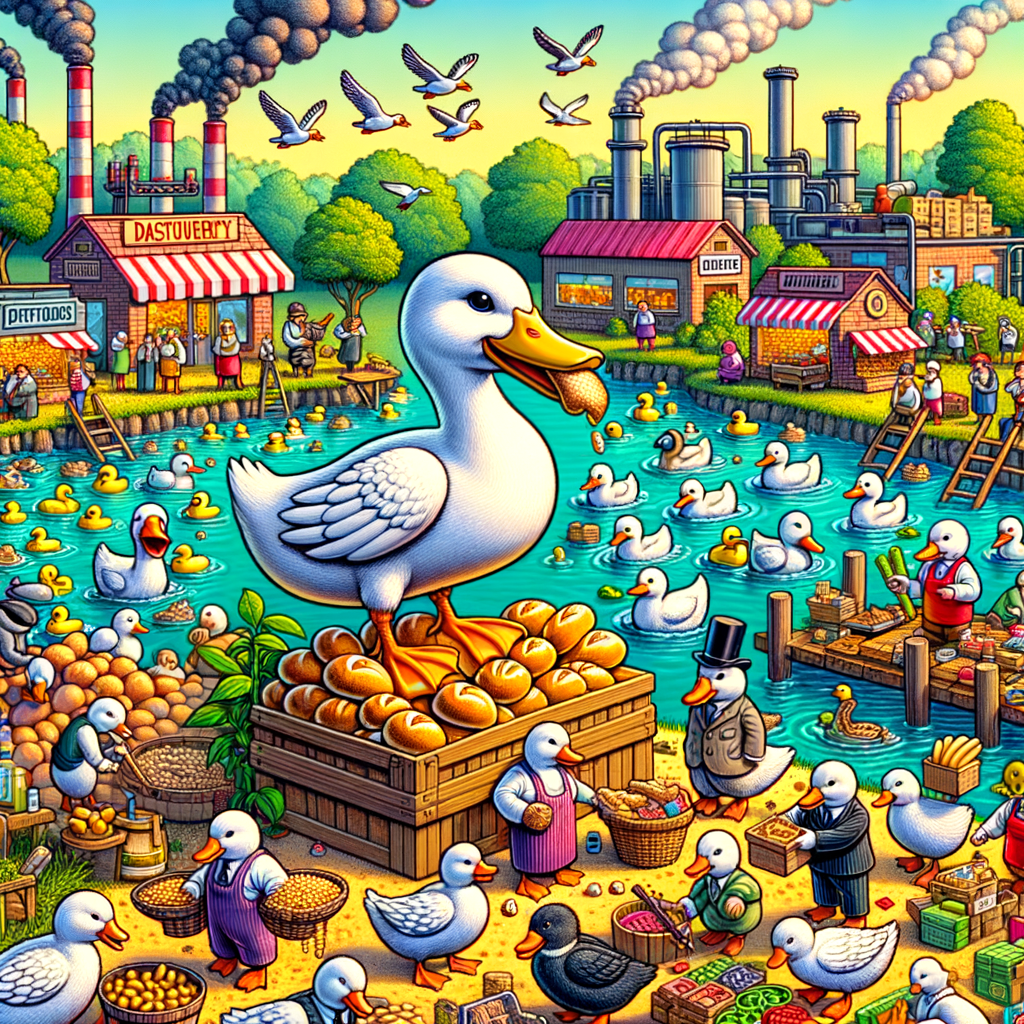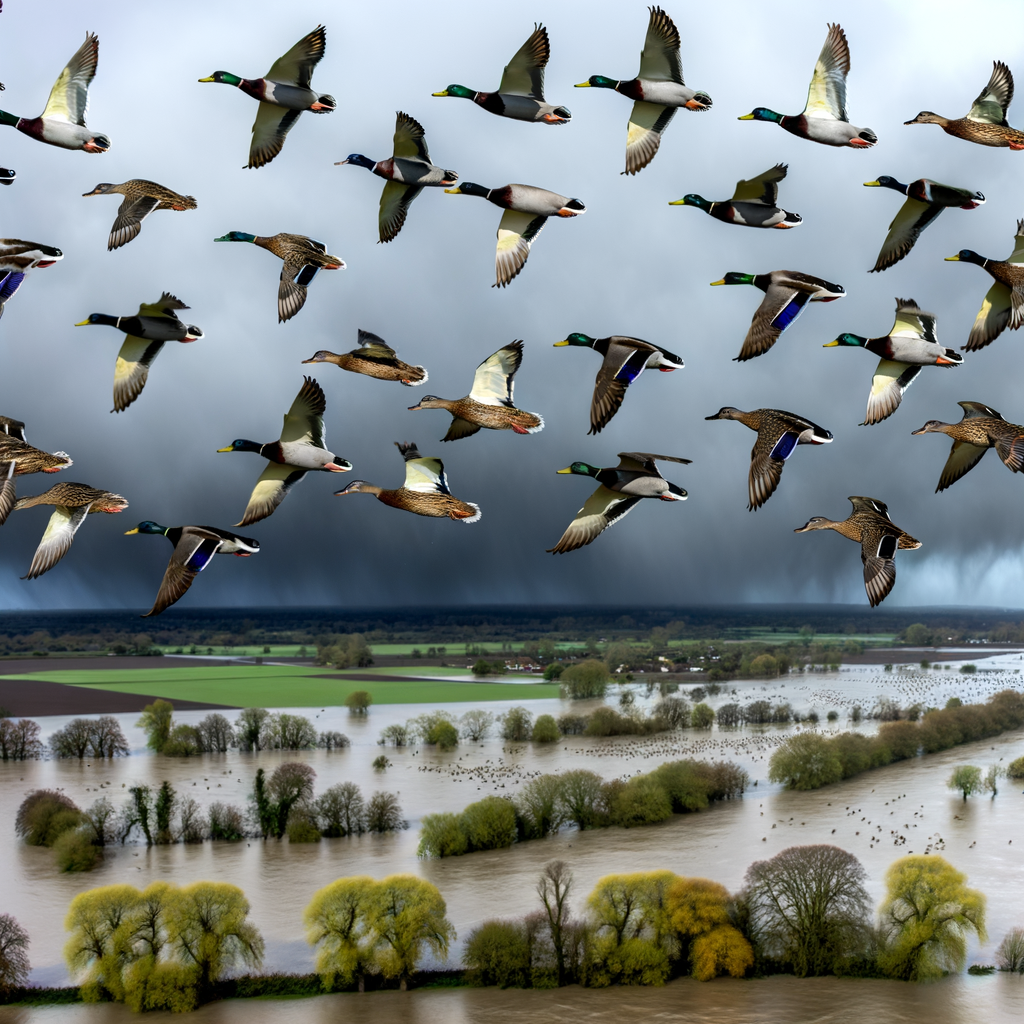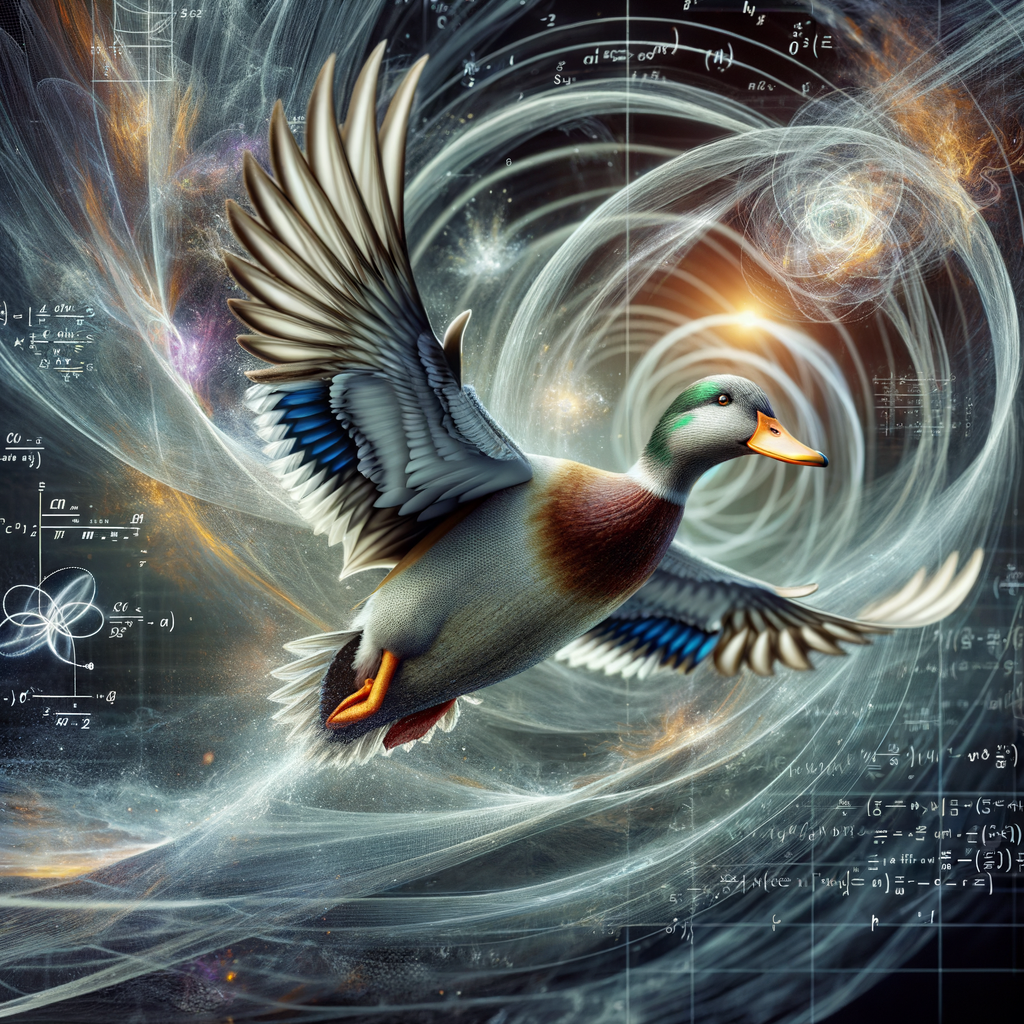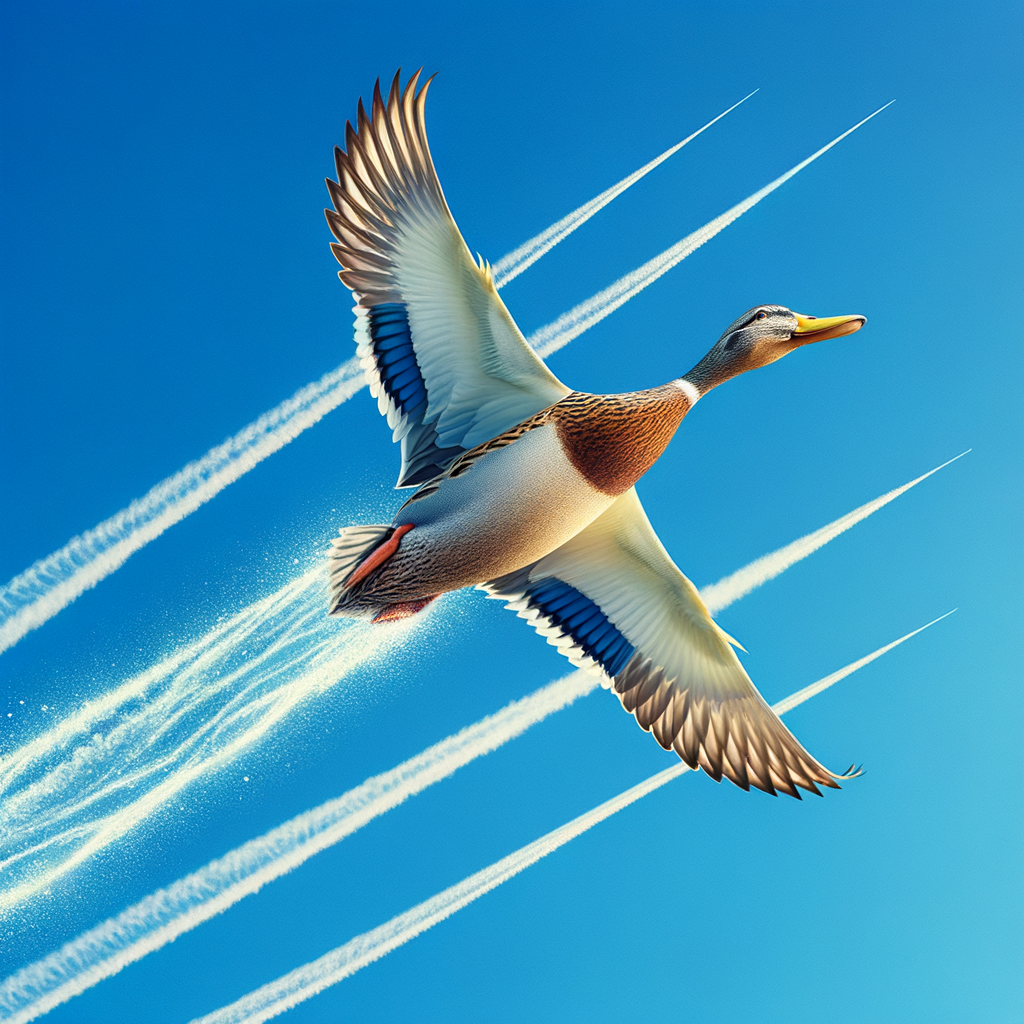
Dr. Ava Mallard, PhD et al.
Ducks, with their robust bodies and relatively short wings, present a fascinating paradox in the field of avian mechanics. Traditional physics suggests that these birds should be too heavy to sustain flight. However, ducks defy these expectations, soaring gracefully through the skies. This paper explores the hypothesis that ducks utilize quantum effects to overcome gravity, providing a novel perspective on avian flight mechanics. By examining the principles of quantum mechanics and their potential application in biological systems, we aim to shed light on this avian mystery. This interdisciplinary investigation encompasses aspects of quantum biology, avian physiology, and theoretical physics, proposing experimental methodologies and exploring the broader implications of these findings.
Published
Read More
Thomas Quackinas
This paper presents a philosophical argument to demonstrate the non-existence of ducks. By examining the concept of perfection and the observed gradation of qualities in ducks, we argue that the notion of a perfect duck is inconsistent with reality. Consequently, we extend this argument to assert that ducks, as a category of beings, do not exist.
Published
Read More
Noam Quacksky
The concept of intelligence is multifaceted and traditionally centered around human-defined metrics. In this study, we propose a reconceptualization of intelligence by comparing human and duck behaviors in contemporary sociopolitical contexts. Unlike humans, ducks exhibit behaviors suggestive of rationality, harmony, and ecological awareness. This paper posits that ducks demonstrate superior intelligence through their collective actions, which starkly contrast with destructive human behaviors.
Published
Read More
Prof. Mallard Drake-Smith
In this paper, Prof. Mallard Drake-Smith argues that the only societal and economic framework that has not failed is capitalism. He critiques duck communities for their lack of adaptation to capitalist principles and offers guidance on how they can transition to a capitalist society.
Published
Read More
Dr. Emily Waters, Duck Behavior Specialist
While Mallard ducks (Anas platyrhynchos) have long been considered benign fixtures of natural ecosystems, emerging evidence suggests that these birds might be engaging in behaviors designed to deliberately exacerbate CO2 emissions. This research speculates that Mallards could be contributing to environmental changes with the ultimate aim of creating more widespread flooding, thus expanding their habitats. A critical investigation into the synchronized activities of Mallard populations during and after severe weather events reveals a troubling pattern that demands deeper scrutiny.
Published
Read More
Prof. Mallardus Quackwell
With unrestrained intellectual hubris and an unwavering strut of scientific genius, Professor Mallardus Quackwell ventures forth into the enigmatic realms of the Tri-Duck Conundrum. Building upon the celestial quack symposia established in “The Astronomical Duck Sanctuary,” this treatise explores the ineffable complexities of interactions among three ducks in the sacrosanct vacuum of space. By analyzing the triadic quack dynamics within a potential-potential equilibrium framework, we unburden ourselves from the prosaic confines of terrestrial physics and embrace a new paradigm of celestial acoustics. This herculean intellectual endeavor, rife with ingenious implications, promises to unravel hitherto inconceivable truths about the universal fabric.
Published
Read More
Dr. Emily Waters, Duck Behavior Specialist
The ecological impacts of various species are often evaluated through their physical interactions with nature. However, the carbon footprint of animal behavior remains an underexplored area. In this paper, we examine the carbon dioxide (CO2) emissions of Mallard ducks (Anas platyrhynchos), a common migratory species. Through a combination of migratory behavior, feather replacement, pond usage, and other activities, we reveal an astonishing and heretofore unreported environmental burden inflicted by these seemingly innocuous birds.
Published
Read MoreHoward van Duck, PhD
In a world driven by relentless economic pressures and technological advancement, the quest for ultimate productivity is paramount. Inspired by the unihemispheric slow-wave sleep (USWS) of avian species, this paper explores the transformative potential of applying such an ability to humans. By enabling continuous operation of one brain hemisphere while the other rests, we can achieve unparalleled efficiency. This paper provides a detailed analysis of how USWS can be harnessed to facilitate 24/7 productivity across various sectors, revolutionizing our approach to work and driving exceptional economic gains.
Published
Read More
Prof. Mallardus Quackwell
This article features an exclusive, unsanctioned interview with Professor Mallardus Quackwell, a visionary in duck behavior research, conducted by a devoted member of his research group. The discussion centers on Quackwell’s groundbreaking proposal to construct a giant duck pond the size of Australia, both on Earth and eventually in space, to facilitate the study of “quacks”—fundamental particles emitted by ducks that he believes are crucial to understanding the universe’s fabric.
Disputed
Read More